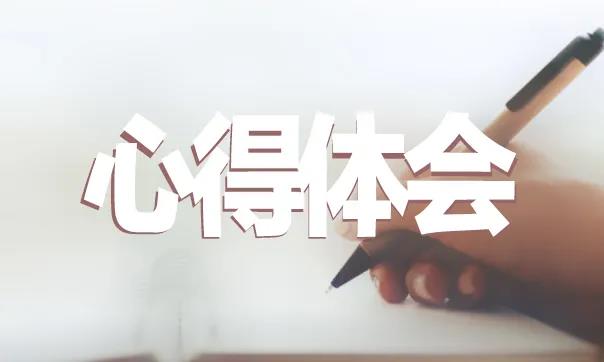wouldrather的五个常用句型1 后接动词原形,表示“宁愿做某事”。如: I’dratherbetoldthetruththanbeliedto.我宁愿听真话,不愿被欺骗。 I’veal下面是小编为大家整理的would,rather五个常用句型3篇【优秀范文】,供大家参考。

would rather的五个常用句型1
后接动词原形,表示“宁愿做某事”。如:
I’d rather be told the truth than be lied to. 我宁愿听真话,不愿被欺骗。
I’ve already seen that film, so I’d rather see another one. 我已经看过那部电影了,所以还是看部别的吧。
I’ll go if you’re going. If not, I’d rather stay at home. 你去我就去,否则我宁可待在家里。
I’d rather do it without anybody’s help. 我宁愿不要任何人帮助,自己干这件事。
“How about a drink?” “I’d rather have something to eat.”“喝一杯怎么样?”“我宁愿来点吃的。”
注:would rather的否定式,通常要将not置于rather之后。如:
I’d rather not say anything. 我宁可什么也不说。
would rather的五个常用句型2
后接从句时,从句谓语要用虚拟语气。具体说来,有以下两种情况:
1. 指现在或将来用过去时。如:
I would rather you didn’t mention the price. 我愿意你别提价钱。
I’d rather you knew that now, than afterwards. 我宁愿你现在知道而不是以后。
Don’t come and see me today—I’d rather you came tomorrow. 今天不要来看我——我希望你们明天来。
Tomorrow’s difficult. I’d rather yon came next weekend. 明天有困难。我希望你下周末来。
“We might go for a swim” “No,l’d rather we didn’t.” “我们去游泳吧。”“不,我想我们最好不去。”
“Shall I give you a cheque?” “I’ d rather you paid cash.” “我付给您支票行吗?”“我想您最好付现金。”
Ann said that Bill wanted to go alone but that she’d rather he went with a group. 安说比尔想一个人去,但她宁愿他跟一大群人一起去。
2. 指过去用过去完成时。如:
I’d rather he hadn’t told me about it 我宁愿他未告诉我这件事。
Kate went by car and I’d rather she hadn’t. 凯特是坐汽车去的`,我倒愿意她不是坐汽车去的。
I’d rather she had asked me before borrowing the car. 我真希望她先问我一声再借车。
注:有时用于虚拟语气语境中。如(from .hxen.com):
If I’d lived in 1400, I’d rather have been a knight than a monk. 如果我生活在1400年,我宁愿当骑士,不当修道士。
If she’d had a chance, she’d rather have lived 100 years ago. 如果有机会她宁愿生活在100年前。
would rather的五个常用句型3
此结构表示“宁愿(做)……而不愿(做)……”。如:
I’d rather go hungry than eat that! 我宁可挨饿也不吃那种东西!
I’ d rather pay his fine for him than let him go to prison. 我宁愿替他交罚款,也不愿让他蹲监狱。
He would rather have the small one than (have) the large one. 他宁愿要小的那个,而不愿要大的。
I’d rather use my money than leave it lying in the bank. 我宁可把钱花了也不想存在银行里。
I’d rather have a room of my own. however small (it is), than share a room. 无论房间多么小,我宁愿一个人住一间,而不愿意与别人合住一个房间。
would rather的五个常用句型3篇扩展阅读
would rather的五个常用句型3篇(扩展1)
——托福写作最常用的十个句型5篇
托福写作最常用的十个句型1
1)It has increased(decreased)from...to...
2)The population in this city has now increased(decreased)to 800,000.
3)The output of July in this factory increased by 15%compared with that of January.
例如: With the improvement of the living standard,the proportion of people’s income spent on food has decreased while that spent on education has increased.
再如: From the graph listed above,itcan be seen that student use of com*rs has increased from an average of less than two hours per week in 1990 to 20 hours in 2000.
注:“From the graph listed above,it can be seen that”见句式12。考生将句式9和句式12结合在一起,便可较好地写出2002年6月CET-4、6短文写作的第一段。
托福写作最常用的十个句型2
1)It is important(necessary,difficult,convenient,possible)for sb.to do sth.
2)We think it necessary to do sth.
3)It plays an important role in our life.
例如: Com*rs are now being used everywhere,whether in the government,in schools or in business.Soon,com*rs will be found in every home,too.We have good reason to say that com*rs are playing an increasingly important role in our life and we have stepped into the Com*r Age.
托福写作最常用的十个句型3
1)We should take some effective measures.
2)We should try our best to overcome(conquer)the difficulties.
3)We should do our utmost in doing sth.
4)We should solve the problems that we are confronted(faced)with.
例如: The housing problem that we are confronted with is becoming more and more serious.Therefore,we must take some effective measures to solve it.
托福写作最常用的十个句型4
1)We cannot ignore the fact that...
2)No one can deny the fact that...
3)There is no denying the fact that...
4)This is a phenomenon that many people are interested in.
5)However,that’s not the case.
例如:We cannot ignore the fact that industrialization brings with it the problems of pollution.To solve these problems,we can start by educating the public about the hazards of pollution.The government on its part should also design stricter laws to promote a cleaner environment.
托福写作最常用的十个句型5
1)It has increased(decreased)from...to...
2)The population in this city has now increased(decreased)to 800,000.
3)The output of July in this factory increased by 15%compared with that of January.
例如: With the improvement of the living standard,the proportion of people’s income spent on food has decreased while that spent on education has increased.
再如: From the graph listed above,itcan be seen that student use of com*rs has increased from an average of less than two hours per week in 1990 to 20 hours in 2000.
注:“From the graph listed above,it can be seen that”见句式12。考生将句式9和句式12结合在一起,便可较好地写出2002年6月CET-4、6短文写作的第一段。
would rather的五个常用句型3篇(扩展2)
——83个高考英语作文常用句型3篇
83个高考英语作文常用句型1
议论文常用句型
1.It is a fact that….……是一个事实
2. It is well-known that….众所周知……
3.There is no doubt that….毫无疑问……
4. I think that….我认为
5. Contrary to the popular thought, I prefer….与流行的想法相反,我更喜欢
6. Some people say/believe/claim that….有人说/相信/声称
7. It is generally believed that….人们普遍认为
8. It is widely accepted that….这是被广泛接受的
9. It is argued/held that….有人认为/认为
10. While it is commonly believed that…, I believe….虽然人们普遍认为……,我相信
11. It can be concluded that….可以得出结论
12. People’s views vary from person to person.......人们的观点因人而异
13.When asked about…,the vast/overwhelming majority of/most/many/quite a few people say/think/believe/answer that…But…
当被问及……时,都输(大多数、许多)人认为(回答)……但是……
14.Nowadays,it is commonly/widely/generally believed/thought/held that…,but I wonder/doubt that…
如今,人们普遍认为……,但是我怀疑……
15.When it comes to…,some think/hold/believe…
当提及……时,有人认为……
16.Depending on personal experience and concern, we find that some people hold the idea of…,while others prefer…
基于个人经历、关注的不同,我们发现有人持……的观点,而另外一些人则喜欢……
17.As a coin has two sides,there are positive aspects and negative aspects to…
如同硬币有正反面一样,……也有积极的一面和消极的一面。
18.There is a public/general debate/controversy/discussion today on/as to the issue of…
如今,有一场关于……问题的公开的(普遍的)争论(讨论)。
19.Recently, the issue/problem/question/of…has been brought into focus/to public attention.
近来,……的问题已经成为人们关注的焦点。
20.Now,there is a growing awareness/recognition of the necessity to…
如今,人们越来越意识到……的必要性。
图表型常用句型
1. The table/diagram/bar chart/pie graph/tree diagram/curve graph /column chart shows/illustrates/reveals/describes/depicts/reflects that/how….表显示/ 反映/如何
2. The graph provides some interesting data regarding….图提供了一些有趣的数据
3. The data/statistics/figures can be interpreted as follows:数据/统计/数据可以解释如下
4. The data/statistics/figures lead us to the conclusion that….数据/统计/数据使我们得出这样的结论:
5. As is shown/demonstrated/exhibited in the diagram/graph/chart/table, ….如图所示/图表/表格中显示/展示
6. It is clear/apparent from the table/chart/diagram/figures that….从表/图/图中清楚/明显
7. The vertical/horizontal axis stands for….垂直/水*轴代表
8. There was rapid/noticeable/great/sharp/steep/remarkable/slow/little/slight/gradual rise/increase/decrease/fall/decline/drop/change in development in ….有迅速/明显/大/急/显/慢/有/轻微/逐渐上升/增加/减少/下降/下降/下降/变化在发展中
9. The percentage remained steady/stable at….的百分比仍然在稳定/稳定
10. The figures stayed the same….这些数字保持不变
11. The figures bottomed out/peaked at….这些数字触底/见顶
12. The figures reached the bottom/a peak/a plateau during…. 这些数字达到了底部/一个高峰。
83个高考英语作文常用句型2
原因分析性段落常用表达句式
1.There are several reasons for…, but in general, they come down to three major ones.…
有几个原因,但总的来说,他们归结为三大问题。
2.There are many factors that may account for…, but the following are the most typical ones.
有很多因素可以解释…,但以下是最典型的因素
3.Many ways can contribute to solving this problem, but the following ones may be most effective.
许多方法可以有助于解决这个问题,但以下的可能是最有效的
4. Generally, the advantages can be listed as follows.
一般而言,优势可以列举如下
5. The reasons are as follows.
其原因如下。
因果推理段落常用句型
1. Because/Since we read the book, we have learned a lot.因为我们读了这本书,我们学到了很多
2. If we read the book, we would learn a lot.如果我们读了这本书,我们会学到很多
3. We read the book; as a result / therefore / thus / hence / consequently / for this reason / because of this, we’ve learned a lot.我们读了这本书,因此/因为这个原因/,因为这,我们已经学到了很多
4. As a result of /Because of/Due to/Owing to reading the book, we’ve learned a lot.由于读了这本书,我们学到了很多
5. The cause of/reason for/overweight is eating too much.超重的原因是吃太多了
6. Overweight is caused by/due to/because of eating too much.超重是由于吃得太多而引起的。
7. The effect/consequence/result of eating too much is overweight.吃太多的影响/结果/结果是超重
8. Eating too much causes/results in/leads to overweight.吃太多导致/导致超重。
举例型段落常用句型
1.Here is one more example.下面是一个例子
2. Take … for example.以……为例
3. The same is true of….同样是真实的
4. This offers a typical instance of….这提供了一个典型的实例
5. We may quote a common example of….我们可以引用一个共同的例子
6. Just think of….只是想到
建议型段落常用句型
1.It is time that we put/urged an immediate end to the undesirable situation/tendency of…
该是结束……这种不良情况(趋势)的时候了。
2.Therefore,in order to…,effective means should be taken to…
所以,为了……,必须采取有效措施来……
3.Perhaps it is time we remembered the old saying….And fighting… is everybody’s business! As for…,we should strive to….
我们应该记住这句古语了……。与……作斗争是每个人的事情。至于……,我们应努力……。
4.In short/In any case, we should/must/ought to…
总之(无论如何),我们应该(必须)……
对比和对照段落常用句型
1.The advantages gained in…outweigh/are much greater than the advantages we gain from…
……的优点远远超过我们从……中获得的。
2.On the one hand,…, on other hand, …
一方面,……;另一方面,……
3.Similarly/Likewise/In the same way, …
同样,……
4.Although… enjoys a distinct advantage, …
尽管……有明显优势,但是……
5. …is no more… than … is/…does not … any more than … does.
……绝不比……更……
6.Indeed, …carries more weight than … when … is concerned.
的确,就……而言,……的重要性要超过……
would rather的五个常用句型3篇(扩展3)
——would rather的五个常用句型 (菁选3篇)
would rather的五个常用句型1
后接动词原形,表示“宁愿做某事”。如:
I’d rather be told the truth than be lied to. 我宁愿听真话,不愿被欺骗。
I’ve already seen that film, so I’d rather see another one. 我已经看过那部电影了,所以还是看部别的吧。
I’ll go if you’re going. If not, I’d rather stay at home. 你去我就去,否则我宁可待在家里。
I’d rather do it without anybody’s help. 我宁愿不要任何人帮助,自己干这件事。
“How about a drink?” “I’d rather have something to eat.”“喝一杯怎么样?”“我宁愿来点吃的。”
注:would rather的否定式,通常要将not置于rather之后。如:
I’d rather not say anything. 我宁可什么也不说。
would rather的五个常用句型2
后接完成式动词,表示过去的想法,通常可译为“(本来)宁愿做某事”。如:
We went by sea, but I’ d rather have gone by air. 我们是乘船去的,可我本想乘飞机去。
“At that time, I would rather have been a factory worker than an animal keeper,” he said. “那时,我宁愿做一个工厂工人,也不愿做动物饲养员,”他说道。
would rather的五个常用句型3
后接从句时,从句谓语要用虚拟语气。具体说来,有以下两种情况:
1. 指现在或将来用过去时。如:
I would rather you didn’t mention the price. 我愿意你别提价钱。
I’d rather you knew that now, than afterwards. 我宁愿你现在知道而不是以后。
Don’t come and see me today—I’d rather you came tomorrow. 今天不要来看我——我希望你们明天来。
Tomorrow’s difficult. I’d rather yon came next weekend. 明天有困难。我希望你下周末来。
“We might go for a swim” “No,l’d rather we didn’t.” “我们去游泳吧。”“不,我想我们最好不去。”
“Shall I give you a cheque?” “I’ d rather you paid cash.” “我付给您支票行吗?”“我想您最好付现金。”
Ann said that Bill wanted to go alone but that she’d rather he went with a group. 安说比尔想一个人去,但她宁愿他跟一大群人一起去。
2. 指过去用过去完成时。如:
I’d rather he hadn’t told me about it 我宁愿他未告诉我这件事。
Kate went by car and I’d rather she hadn’t. 凯特是坐汽车去的`,我倒愿意她不是坐汽车去的。
I’d rather she had asked me before borrowing the car. 我真希望她先问我一声再借车。
注:有时用于虚拟语气语境中。如(from .hxen.com):
If I’d lived in 1400, I’d rather have been a knight than a monk. 如果我生活在1400年,我宁愿当骑士,不当修道士。
If she’d had a chance, she’d rather have lived 100 years ago. 如果有机会她宁愿生活在100年前。
would rather的五个常用句型3篇(扩展4)
——公共英语口语常用句型3篇
公共英语口语常用句型1
1. Tony speaks English and he plays tennis.托尼会说英语,打网球。
2. What is worth doing is worth doing well.只要你觉得某事值得去做,就一定要把它做好。
3. Would you like to go to a party with me?你想不想和我一起去参加一个聚会?
4. All at once, a rabbit came out of a hole.突然,一只兔子从一个洞中跑了出来。
5. All characters in the book are imaginary.书中所有的人物都是虚构的.。
6. The grass is moist early in the morning.清晨的草地湿漉漉的。
7. The test finished. We began our holiday.考试结束了,我们开始放假。
8. This question is too complicated for me.这个问题对我说来太复杂了。
9. Do you feel like going to that new disco? 你想去那个新开的迪厅
10. Ducks know how to swim when they are born.鸭子天生会游泳
公共英语口语常用句型2
1. Tony speaks English and he plays tennis.托尼会说英语,打网球。
2. What is worth doing is worth doing well.只要你觉得某事值得去做,就一定要把它做好。
3. Would you like to go to a party with me?你想不想和我一起去参加一个聚会?
4. All at once, a rabbit came out of a hole.突然,一只兔子从一个洞中跑了出来。
5. All characters in the book are imaginary.书中所有的人物都是虚构的。
6. The grass is moist early in the morning.清晨的.草地湿漉漉的。
7. The test finished. We began our holiday.考试结束了,我们开始放假。
8. This question is too complicated for me.这个问题对我说来太复杂了。
9. Do you feel like going to that new disco? 你想去那个新开的迪厅
10. Ducks know how to swim when they are born.鸭子天生会游泳
would rather的五个常用句型3篇(扩展5)
——英语口语对话常用句型 (菁选3篇)
英语口语对话常用句型1
1.I"m an office worker. 我是上班族。
2.I work for the government. 我在*机关做事。
3.I"m happy to meet you. 很高兴见到你。
4.I like your sense of humor. 我喜欢你的幽默感。
5.I"m glad to see you again. 很高兴再次见到你。
6.I"ll call you. 我会打电话给你。
7.I feel like sleeping/ taking a walk. 我想睡/散步。
8.I want something to eat. 我想吃点东西。
9.I need your help. 我需要你的帮助。
10.I would like to talk to you for a minute. 我想和你谈一下。
11.I have a lot of problems. 我有很多问题。
12.I hope our dreams come true. 我希望我们的梦想成真。
13.I"m looking forward to seeing you. 我期望见到你。
14.I"m supposed to go on a diet / get a raise. 我应该节食/涨工资。
15.I heard that you"re getting married. Congratulations.听说你要结婚了,恭喜!
16.I see what your mean. 我了解你的意思。
17.I can"t do this. 我不能这么做。
18.Let me explain why I was late. 让我解释迟到的理由。
19.Let"s have a beer or something. 咱们喝点啤酒什么的。
20.Where is your office? 你们的办公室在哪?
21.What is your plan? 你的计划是什么?
22.When is the store closing? 这家店什么时候结束营业?
23.Are you sure you can come by at nine? 你肯定你九点能来吗?
24.Am I allowed to stay out past 10? 我可以十点过后再回家吗?
25.The meeting was scheduled for two hours, but it is now over yet. 会议原定了两个小时,不过现在还没有结束。
26.Tom"s birthday is this week. 汤姆的.生日就在这个星期。
27.Would you care to see it/ sit down for a while? 你要不要看/坐一会呢?
28.Can you cover for me on Friday/help me/ tell me how to get there? 星期五能不能请你替我个班/你能帮我吗/你能告诉我到那里怎么走吗?
29.Could you do me a big favor? 能否请你帮我个忙?
30.He is crazy about Crazy English. 他对疯狂英语很着迷。
31.Can you imagine how much he paid for that car?你能想象他买那车花了多少钱吗?
32.Can you believe that I bought a TV for $25?
33.Did you know he was having an affair/cheating on his wife? 你知道他有外遇了吗?/欺骗他的妻子吗?
34.Did you hear about the new project? 你知道那个新项目吗?
35.Do you realize that all of these shirts are half off? 你知道这些衬衫都卖半价了吗?
36.Are you mind if I take tomorrow off? 你介意我明天请假吗?
37.I enjoy working with you very much. 我很喜欢和你一起工作。
38.Did you know that Stone ended up marrying his secretary? 你知道吗?斯通最终和他的秘书结婚了。
39.Let"s get together for lunch. 让我们一起吃顿午餐吧。
40.How did you do on your test? 你这次考试的结果如何?
41.Do you think you can come? 你认为你能来吗?
42.How was your weekend ? 你周末过得怎么样?
43.Here is my card. 这是我的名片。
44.He is used to eating out all the time. 他已经习惯在外面吃饭了。
45.I"m getting a new computer for birthday present. 我得到一台电脑作生日礼物。
英语口语对话常用句型2
1.How do you do? 你好!
2.Good night, Jane. 晚安,简。
3.Good-bye, Mike. 再见,迈克。
4.See you tomorrow. 明天见。
5.See you later. 待会儿见。
6.I have to go now. 我必须走了。
7.How to make introduction ?
8.What"s your name? 你叫什么名字?
9.May I have your name? 能告诉我你的名字吗?
10.My name is Thomas. 我叫汤姆斯。
11.Hello! / Hi! 你好!
12.Good morning / afternoon / evening! 早晨(下午/晚上)好!
13.I"m Kathy King. 我是凯西·金。
14.Are you Peter Smith? 你是彼得·史密斯吗?
15.Yes, I am. / No, I"m not. 是,我是。/ 不,我不是。
16.How are you? 你好吗?
17.Fine, thanks. And you? 很好,谢谢,你呢?
18.I"m fine, too. 我也很好。
19.How is Amy / your wife / your husband? 爱米好吗?/你妻子好吗?/你丈夫好吗?
20.She is very well, thank you. 她很好,谢谢
21.Just call me Tom. 就叫我汤姆吧。
22.What"s your family name? 你姓什么?
23.My family name is Ayneswonth. 我姓安尼思华斯。
24.How do you spell it? 怎么拼?
25.Who is the lady in white? 穿白衣服的那位小姐是谁?
26.He"s still a boy after all. 他毕竟还只是个孩子。
27.Hi, Joe, is it really you? 乔,你好,真是你吗?
28.Hi, Ann. Nice to see you again. 安,你好。真高兴再次见到你。
29.It"s been a whole year since I last saw you. 我整整一年没见你了。
30.Yes, but you look as pretty now, as you did then. 但你看起来还是那么漂 亮。
31.Oh, thank you. How have you been these days? 欧,谢谢。这段时间你好吗? Not too bad. 不太糟。
32.But you sound so sad. 但听起来你很悲伤。
33.Yes, I lost my pet cat yesterday. 是啊,昨天我的.宠物猫丢了。
34.Oh, I"m sorry to hear that. 听到这消息我很遗憾。
35.That"s all right. 没事儿。
英语口语对话常用句型3
1.I"m an office worker. 我是上班族。
2.I work for the government. 我在*机关做事。
3.I"m happy to meet you. 很高兴见到你。
4.I like your sense of humor. 我喜欢你的幽默感。
5.I"m glad to see you again. 很高兴再次见到你。
6.I"ll call you. 我会打电话给你。
7.I feel like sleeping/ taking a walk. 我想睡/散步。
8.I want something to eat. 我想吃点东西。
9.I need your help. 我需要你的帮助。
10.I would like to talk to you for a minute. 我想和你谈一下。
11.I have a lot of problems. 我有很多问题。
12.I hope our dreams come true. 我希望我们的梦想成真。
13.I"m looking forward to seeing you. 我期望见到你。
14.I"m supposed to go on a diet / get a raise. 我应该节食/涨工资。
15.I heard that you"re getting married. Congratulations.听说你要结婚了,恭喜!
16.I see what your mean. 我了解你的意思。
17.I can"t do this. 我不能这么做。
18.Let me explain why I was late. 让我解释迟到的理由。
19.Let"s have a beer or something. 咱们喝点啤酒什么的。
20.Where is your office? 你们的办公室在哪?
21.What is your plan? 你的计划是什么?
22.When is the store closing? 这家店什么时候结束营业?
23.Are you sure you can come by at nine? 你肯定你九点能来吗?
24.Am I allowed to stay out past 10? 我可以十点过后再回家吗?
25.The meeting was scheduled for two hours, but it is now over yet. 会议原定了两个小时,不过现在还没有结束。
26.Tom"s birthday is this week. 汤姆的.生日就在这个星期。
27.Would you care to see it/ sit down for a while? 你要不要看/坐一会呢?
28.Can you cover for me on Friday/help me/ tell me how to get there? 星期五能不能请你替我个班/你能帮我吗/你能告诉我到那里怎么走吗?
29.Could you do me a big favor? 能否请你帮我个忙?
30.He is crazy about Crazy English. 他对疯狂英语很着迷。
31.Can you imagine how much he paid for that car?你能想象他买那车花了多少钱吗?
32.Can you believe that I bought a TV for $25?
33.Did you know he was having an affair/cheating on his wife? 你知道他有外遇了吗?/欺骗他的妻子吗?
34.Did you hear about the new project? 你知道那个新项目吗?
35.Do you realize that all of these shirts are half off? 你知道这些衬衫都卖半价了吗?
36.Are you mind if I take tomorrow off? 你介意我明天请假吗?
37.I enjoy working with you very much. 我很喜欢和你一起工作。
38.Did you know that Stone ended up marrying his secretary? 你知道吗?斯通最终和他的秘书结婚了。
39.Let"s get together for lunch. 让我们一起吃顿午餐吧。
40.How did you do on your test? 你这次考试的结果如何?
41.Do you think you can come? 你认为你能来吗?
42.How was your weekend ? 你周末过得怎么样?
43.Here is my card. 这是我的名片。
44.He is used to eating out all the time. 他已经习惯在外面吃饭了。
45.I"m getting a new com*r for birthday present. 我得到一台电脑作生日礼物。
would rather的五个常用句型3篇(扩展6)
——雅思写作常用句型 (菁选3篇)
雅思写作常用句型1
36.那些想要图书馆在本质上保留更多传统的人们指出高科技设备的成本问题
Those who want libraries to remain more traditional in nature point to the costs of hi-tech equipment.
37.你穿的衣服是表达你的独特性的方式
The clothing that you wear is one way to express your uniqueness .
38.他们认为这种作法与目前高度尊崇自由与个性的文明社会不一致
They think this practice does not coincide with the civilized world in which liberty and individuality are worshiped highly.
39.导致这一现象的`最直接原因是农业机械的过度使用,这将使农民从土地中*出来到城市寻找更多的机会
The most immediate factor that has give rise to this phenomenon is the extensive use of farming machinery, which has freed more farmers from the land to seek better opportunities in cities.
雅思写作常用句型2
40.因为坏人带枪,如果警察不配枪市民就很危险了
As evil people always have guns, it is dangerous for citizens if the police do not carry them.
41.由于女性的体质不同于男性,她们在军队的激烈竞争中比不过男性
Because women’s physiques are different, they are not so capable as men in the fiercely competitive world of the military.
42.如果我们推倒老建筑,我们就破坏了文化遗产和传统价值
If we tear down the old building, we are ruining the culture heritage and the traditional values as well.
43.记者应该相当的客观,尽管完全客观是难以达到的,因为每个人都有自己的观点和意见。
Journalists should be reasonably objective, though complete objectivity will be different to achieve, as everyone has their own opinions and standpoints .
44.就象年轻人可以停下工作享受休闲时光,老年人也应该被允许继续工作
Just as young people can choose to stop working and enjoy their leisure time, old people should also be allowed to continue working.
雅思写作常用句型3
36.那些想要图书馆在本质上保留更多传统的人们指出高科技设备的成本问题
Those who want libraries to remain more traditional in nature point to the costs of hi-tech equipment.
37.你穿的衣服是表达你的独特性的方式
The clothing that you wear is one way to express your uniqueness .
38.他们认为这种作法与目前高度尊崇自由与个性的文明社会不一致
They think this practice does not coincide with the civilized world in which liberty and individuality are worshiped highly.
39.导致这一现象的最直接原因是农业机械的过度使用,这将使农民从土地中*出来到城市寻找更多的机会
The most immediate factor that has give rise to this phenomenon is the extensive use of farming machinery, which has freed more farmers from the land to seek better opportunities in cities.
推荐访问:句型 常用 would rather五个常用句型3篇



